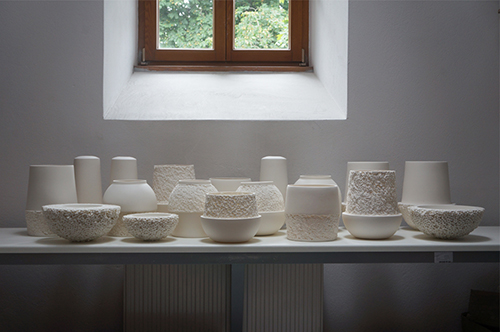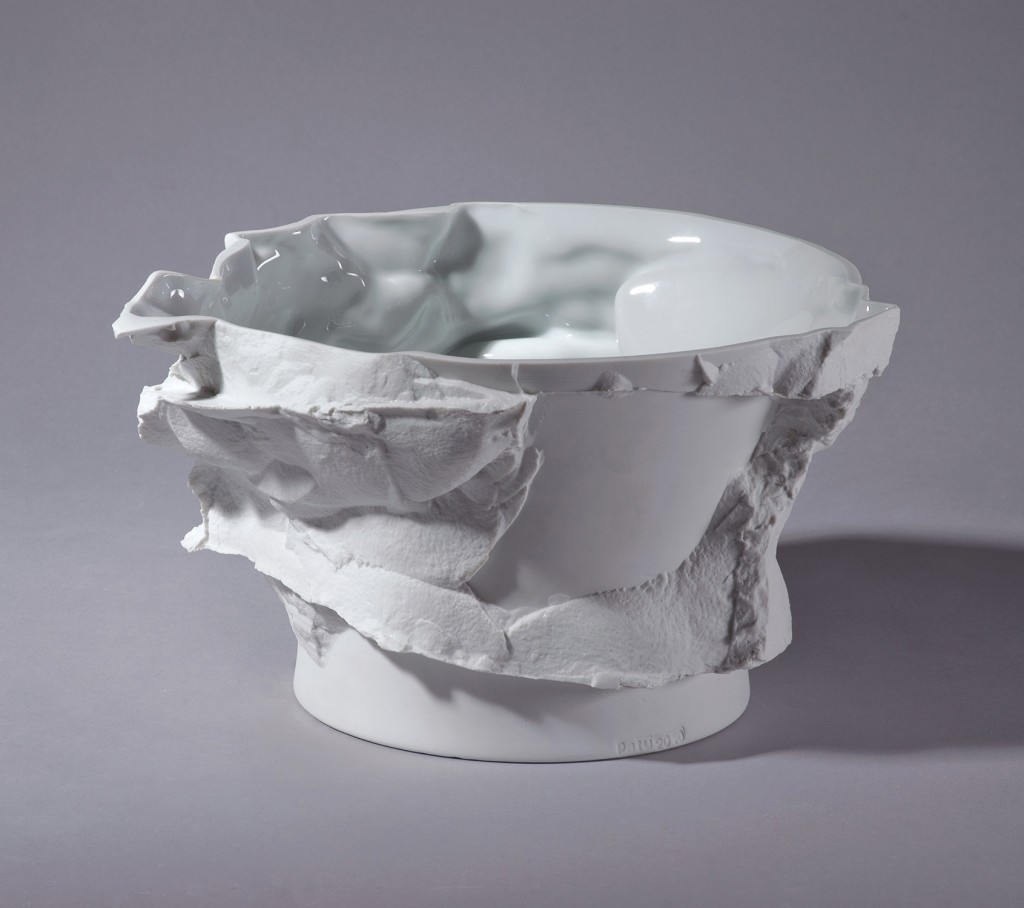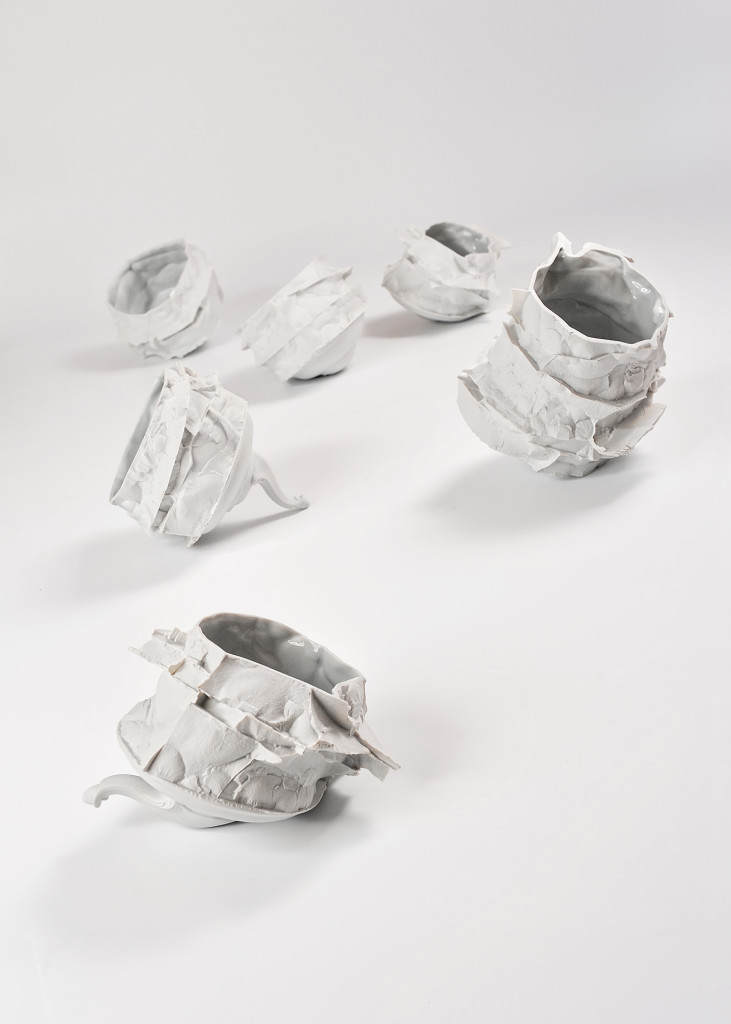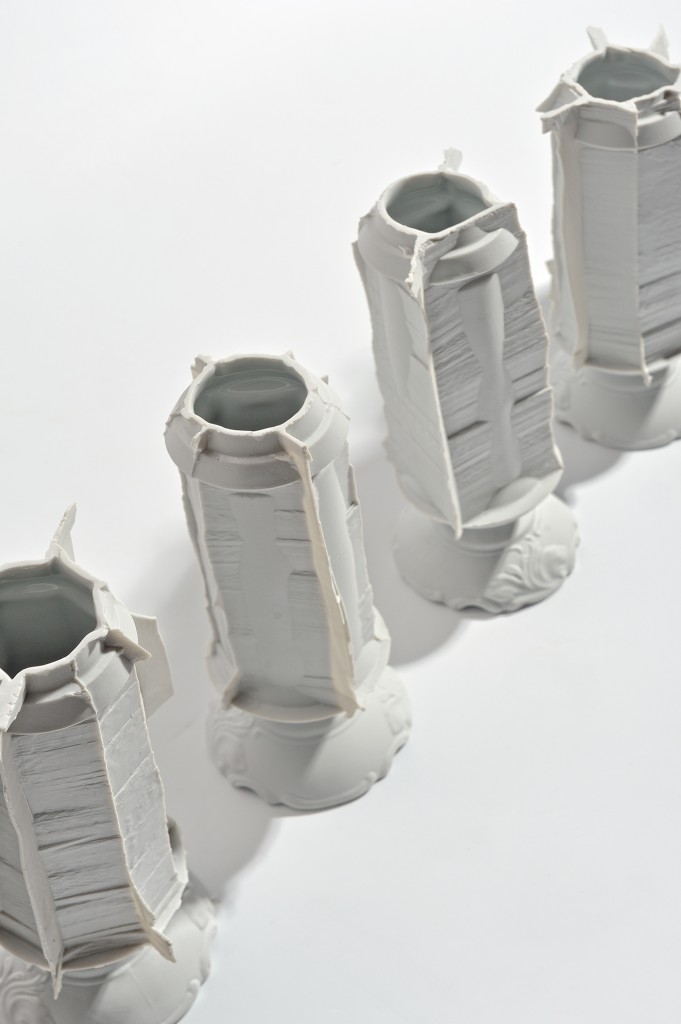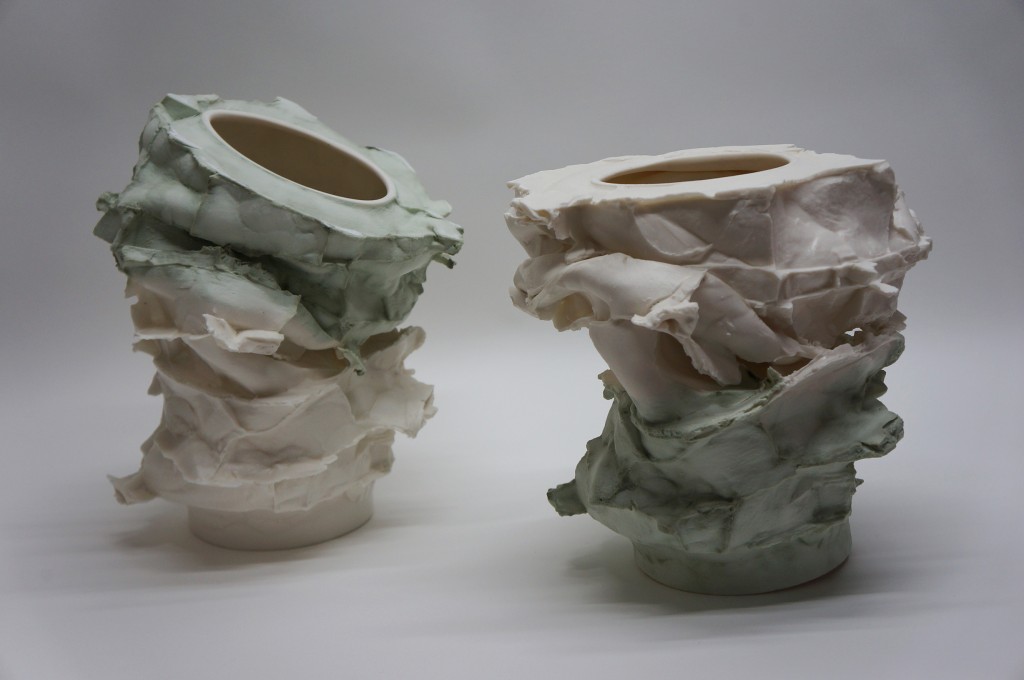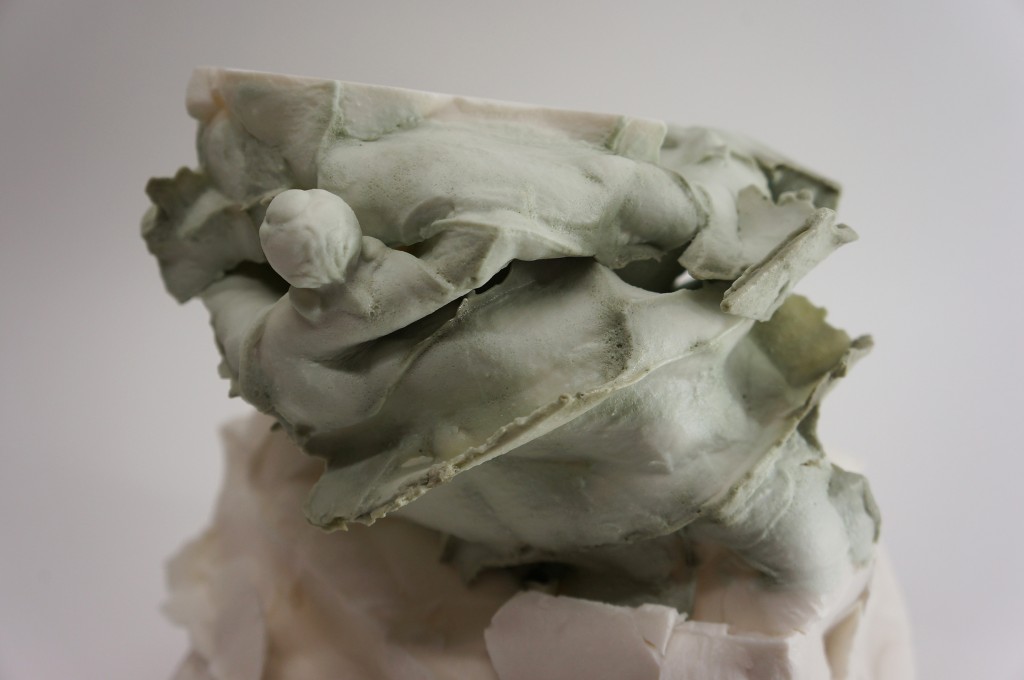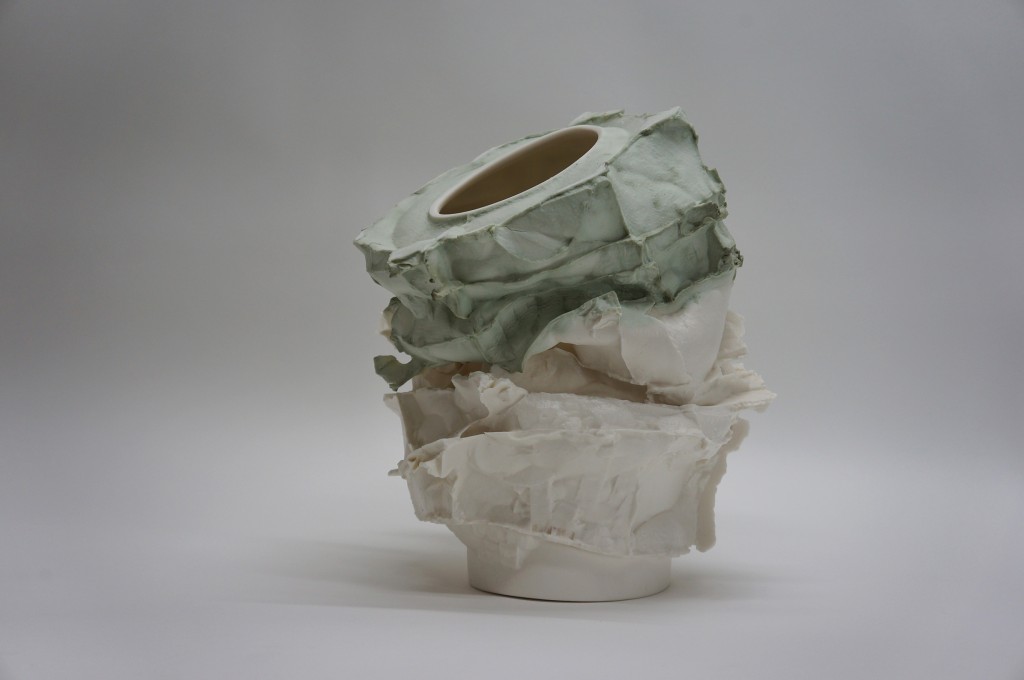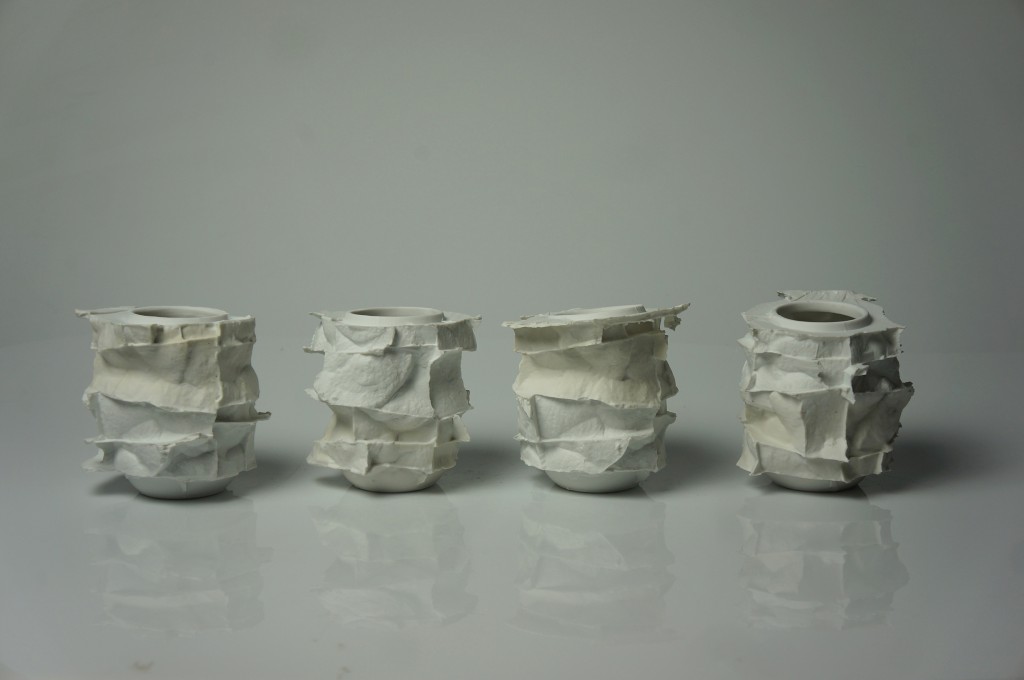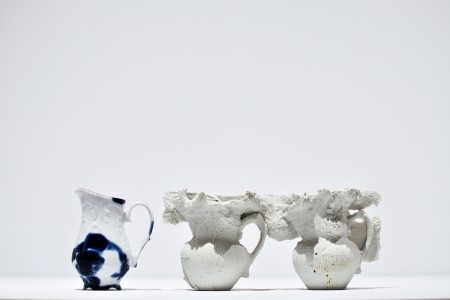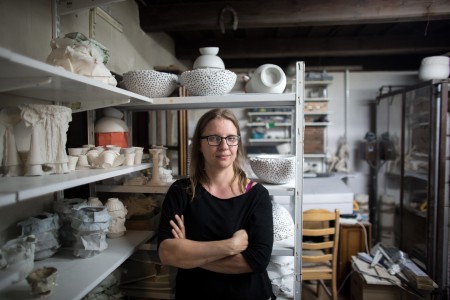Monika Patuszynska – Extended Interview
Rounding up a year in-which TLmag, under the guise of Pro Materia, crossed the globe with a series of special editions and exhibitions, we bring you our well over-due extended interview of Polish ceramicists Monika Patuszynska – featured as part of Nasza Polska.
Tied to the intimate, tactile, challenging and expressive qualities of her chosen medium, Warsaw-based Patuszyńska has spent more then 20 years exploring and perfecting porcelain. As the former president of the International Ceramics Symposium, Porcelain Another Way and current Artistic Director of the Institute of Design in Kielce, she is a strong voice in the ceramics scene. Constantly reevaluating constraints, the master ceramist dedicates her own practice to process rather than results.
© Courtesy of Monika Patuszynska
TLmag: How and when did you first come into contact with ceramics, did you ever work with another medium?
Monika Patuszynska: I was introduced to ceramics in Denmark over 20 years ago and have never felt the necessity to use any other medium since. Ceramics, especially porcelain, offers everything that I need; it is both abstract and able to convey representational ideas; it has been accompanying communities for ages, but managed to maintain its independence; it serves all the purposes that suits me best- it is tactile, intimate and constantly challenging.
© Czeslaw Chwiszczuk
TLmag: Your work ranges from structural to organic. Where do you draw inspiration?
MK: My main inspiration is my own work and the nature of the materials that I work with. By choosing casting as the primary production method I have situated myself within the ages of porcelain industry and defining myself towards the past and the present also plays a huge role. I am inspired by the process, most of all by its errors and accidents. I constantly seek out the difficulties posed by working in porcelain. The objects themselves are not the main focus; they are a side effect of my explorations. I do not believe that a plaster mould as it exists in a factory, smooth and fine, is a true plaster. I do not believe that true porcelain is smooth, submissive and docile, even though it is often presented as such. You can deprive your cat its claws, but will it still be a true cat? That’s why my plaster is rough and my porcelain can injure.
© Grzegorz Stadnik
TLmag: What was the initial concept behind the Transforms Plus and Nonforms series, how are they similar and how do they differ?
MK: NonForms were made in 2009 as a result of investigating the possibilities of casting porcelain without the plaster moulds and considerations over the role of the void as an inherent/ inseparable element of the vessel. In 2010 I started to work on the series called TransForms. The series come from broken, crippled plaster moulds collected in ceramic factories. They are made of borrowed details and processed traditional designs. These are hybrids, cross-breeds/ mongrels produced from fragments of found plaster moulds which have been modified and joined to form completely new species.
© Grzegorz Stadnik
TLmag: Allowing material to drive your process, how do your maintain a close attention to detail?
MK: I am an accident tamer. I like to play with the nature of accidents and work with them. In our culture an accident is considered an error. However the tamed accident is not an accident any more, is it? The tamed accident becomes a technique. I am not really interested in conquering the world of nature, in overpowering the materials. I don’t see anything thrilling in it. It has never been an issue. What interests me much more- is to learn the material, to understand it and to treat it as a partner by embracing the imperfections of the process. Direct contact with the medium is essential as it is all about balancing between maintaining the control and letting be in an attempt to capture the true nature of the material.
© Courtesy of Monika Patuszynska
TLmag: Could you describe the different techniques you use and how you’ve been able to translate them into production?
MK: I break the mould (laughs). For years I have been casting in a way that it should be done- repeating the gestures of thousands who were casting before me. However, the limits of the “proper” casting seemed always too narrow for me. There was a time when the list of “do nots” became for me a guide through ceramics- the list of “must do”. I tend not to believe in anything that I do not experience myself- especially the superstitions concerning the use of materials. Luckily I am not in the mass-production situation- I use to the maximum all the advantages that the studio ceramics offers. I have been casting without the mould; I have created the moulds without having the model made first. Lately I have been working on solid blocks of plaster and found plaster moulds that I modify by sawing, smashing and breaking them into pieces, then after they are reassembled, I cast the void inside, sometimes adding bits and pieces cast from other moulds and manipulating the cast itself. The plaster mould is not an end product; it is just a beginning of the creative process. The process of breaking up and piecing the broken pieces back together allows defining the object again, deprives it of its earlier designed character and gives it a new, different meaning.
© Courtesy of Monika Patuszynska
TLmag: You said that you’d had two different careers, what changed in recent years?
MK: I consider myself a maker; however making is not always enough for me. From time to time I feel the need to be involved in shaping the part of the reality that I belong to myself instead of leaving it to others. That, unfortunately, cannot be achieved by making ceramics. For five years I have been a president of the International Ceramics Symposium Porcelain Another Way and some months ago I was appointed an Artistic Director at the Institute of Design in Kielce.
© Courtesy of Monika Patuszynska
TLmag: Having studied and worked in Paris, Denmark and other parts of Europe, how do you identity different approaches? How has this shaped your practice.
MK: I travel a lot. Everywhere I go- whether it is Europe, China or United States- I try to let the place where I work affect my practice. Probably the most influential was Denmark as it happened at the very beginning of my ceramic career and my whole ceramic vocabulary and background was shaped there. It has evolved slightly through the last 20 years- through the hundreds of books read, the thousands of people met, the millions of thoughts thought and the tones of porcelain cast…. My affection for ceramics understood as a vessel is definitely owed to Denmark, thinking of ceramics as a domain where art and design are not the contraries but are infiltrating each other- to 5 years spent at the Academy of Fine Arts in Wrocław, Poland. All the places I have been working in undoubtedly affected my practice.
© Courtesy of Monika Patuszynska
TLmag: What is the significance of having Warsaw as a home base? How do you place yourself within a Polish context?
MK: Warsaw is my natural environment. My family has been living in Warsaw for generations, I was born here and here I grew up. It is crucial for me to know where I come from, kind of defining where I belong. And for me, as a human, that is definitely Warsaw. As a maker I situate myself entirely within the European context.
